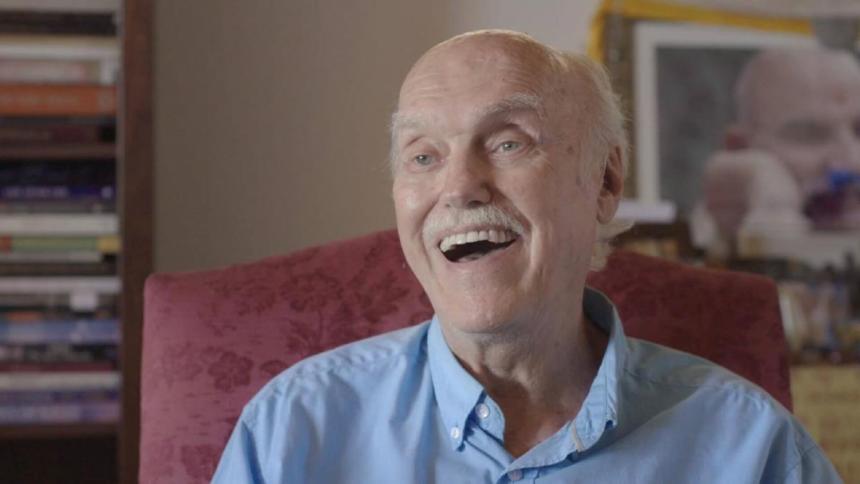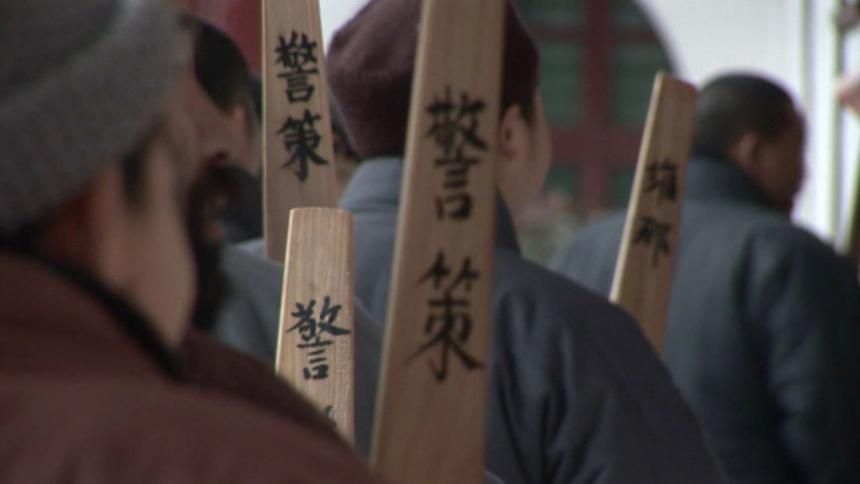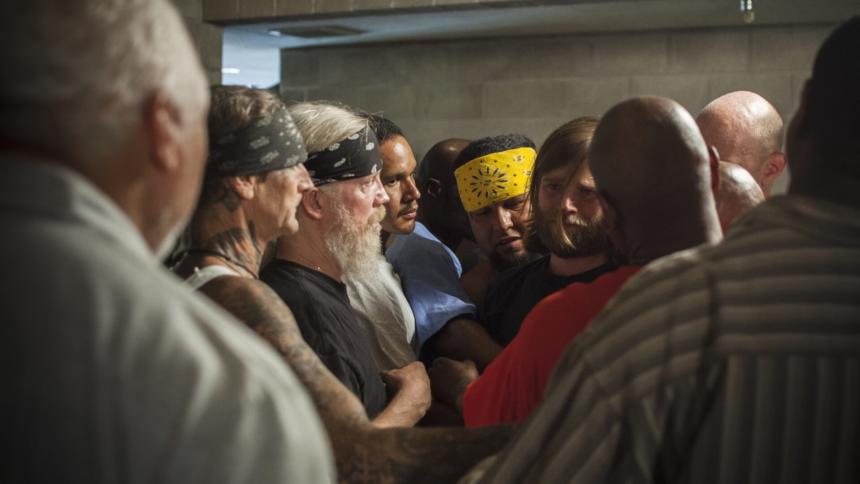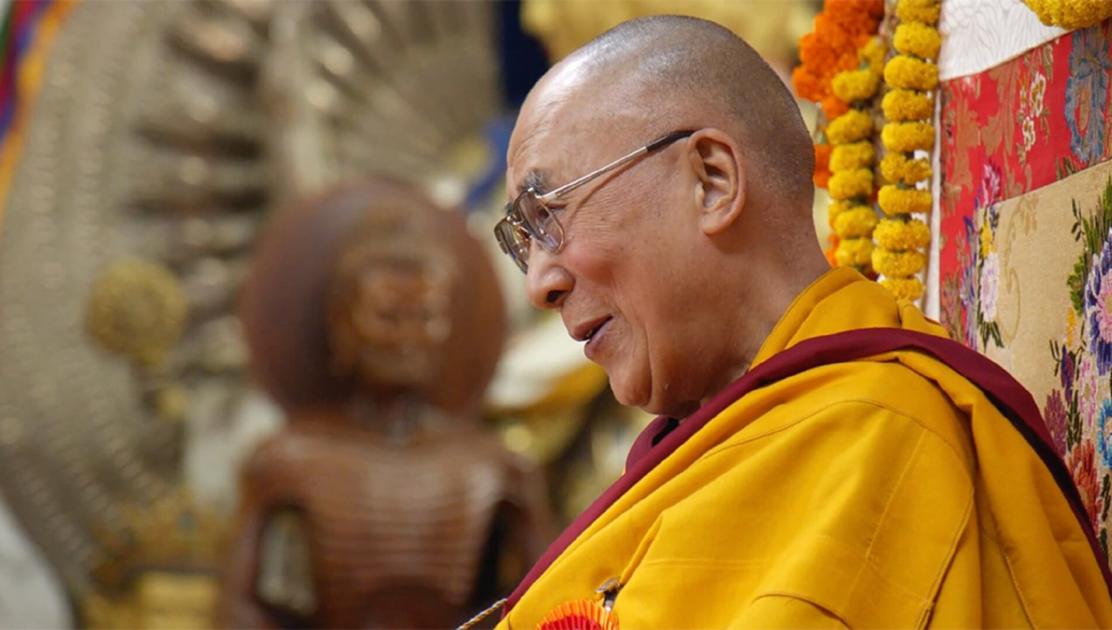The Meditative Life
Jacob Burns Film Center
By Brian AckermanThe Jacob Burns Film Center hosts an annual Meditative Life film series which explores not only meditation and mindfulness, but also the many ways in which we investigate the different realms of the human experience. This year’s film series, The Meditative Life 2018: Meaning, Happiness, and Connection, will run from February 7 to February 28. These films draw us closer to Thich Nhat Hanh and the Dalai Lama, steep us in music and silence, and bring us into the worlds of tai chi and the monastic life—and even to Folsom State Prison, where inmates participate in a powerful form of personal growth and exploration.
Trailer for Meditative Life 2018: Meaning, Happiness, and Connection
Brian Ackerman, Programming Director of the Jacob Burns Film Center, is one of the curators of this film series. He shares his reflections on the series and the films that are being featured this year.
I don’t come to this series as someone with a deep meditation practice, but rather as someone fascinated by everything that has emerged around meditation; all those many practices and ideas circling around the culture’s embrace of mindfulness. Yoga, Tai Chi, acupuncture, shamanism, kirtans, bio-feedback, neuroscience, consciousness, mysticism; as well as institutions like the Rubin Museum and the Garrison Institute. Beyond that (or perhaps because of it) I find myself fascinated by spirituality—that very tricky word—in a fashion that surprises me. So the Meditative Life Series is a mix of all these different sensibilities and inspirations, and since the series has grown virtually every year for the last six years, that invites us to throw some curves. Inevitably people walk up to me and say, hey, what did that film have to do with meditation? Well, often, nothing. But I like to think that it’s all part of a movement trying to lean into a different way of living, of exploration, of simply slowing down and looking.
One question this series always brings up is: “Where are we all when we’re watching a movie?” That act of watching a movie in a theater implies a crazy, odd, trance-like state. A deep, immersive place that we fall into instantly and completely take for granted. But where is that? Somewhere, one senses, between waking, meditation, and dreaming. A space where we have some terrifically powerful experiences. I think the real joy of being a film programmer at a place like the Burns is having the opportunity to open yourself to a massive range of experiences that you can find within that liminal space, within this incredible art form.
Karen Goodman, Sharon Avrutick, and I curated this year’s series, and there was a significant pool from which to draw from. I’ll admit that both Karen and Sharon spent more time viewing the movies than I, but one film that truly resonated with me, as both a piece of art and a learning experience, was Ram Dass: Going Home.

“Ram Dass: Going Home”
As a programmer I watch lots of movies, and when I see something like Going Home—an exquisite 32 minutes—I’m reminded how oppressive the convention is that movies should be around an hour and half. Most films, it seems, stretch themselves to get there. Whereas these 32 minutes are almost perfect, like eating four kernels of rice and being completely full. Somehow it’s all there.
When I hear Ram Dass’s slight, labored voice at the beginning of the film, I think: oh, he’s so frail and tired. But by the end, I heard something different in his voice. You hear the quiet poetry of things that don’t need to be said with force to carry true, in a voice barely above the wisp of the wind, that one senses will soon be only that. Like the paradox that this film plays bigger from its smallness, the quiet of Ram Dass’s voice somehow makes more imprint than when he was younger, when it was full of playful vigor and confidence.
It’s in a younger voiceover in the film that he says, “death is another step towards home.” Somehow then it was an assertion, and now, years later, slowed by stroke and age, you see that he is living it. The equanimity with which he carries forward, in full knowledge, with open heart, is the film’s clear and simple message. I could watch this film every morning as its own meditation.
And we’re incredibly lucky that Krishna Das will be coming to talk about the film for opening night—that’s a sort of dream pairing.
Everything in the series is there for a reason, but I do know that Karen and Sharon both really loved In Pursuit of Silence. The camera sweeps from the busiest, loudest parts of the world to the most still, and envisions silence as a blessing and a gift. Sharon Avrutick says of it: “In Pursuit of Silence touched me deeply for its multifaceted (poetic, scientific, spiritual) exploration of a human need that mostly goes unmet.” She also found delight in Walk With Me, and describes it as “a portrayal of what it’s like to live in Thich Nhat Hanh’s community in a totally committed—but not a superhuman—way. The people are funny and wry, and the atmosphere warm and open. There’s humor and music alongside serious study and commitment.”

“One Mind: Zen Pilgrimage”
Karen Goodman also connected with One Mind: A Zen Pilgrimage. This documentary explores a secluded and extremely traditional Zen retreat in China, one which has been virtually unchanged for 1200 years. She found watching the film became a meditative experience. “No talking heads or pontificating new age gurus….just the clear voices of the monks themselves, whose simple everyday lives speak volumes about living in an essential and honest way.”
Karen also cites Orange Sunshine–a film focused on a psychedelic church formed in the ‘60’s–as something special: “I’d say that the extraordinary piece of Orange Sunshine, beyond the evocative social history of an unlikely business partnership among a generation of disenfranchised dreamers, is the access to those who lived the experience in that moment, including young mothers and fathers who staked everything they knew to build a movement of collective support and shared values. And the pathos of hindsight is powerful here, so it’s much more than an account of a very wild ride.”
One piece we’re playing that I love is The Professor: Tai Chi’s Journey West, which is about Cheng Man-Ching, a great Tai Chi master who brought the practice to New York in the ‘60’s, when the practice was virtually unknown in this part of the world. I’m especially excited that we’ll have the filmmaker, Barry Strugatz, and Ed Young, one of his first students and a celebrated illustrator, join us in the discussion afterwards. The film rewrote what I knew about Tai Chi, and I found the sheer beauty and mystery of the practice riveting.

“The Work”
Karen Goodman and I will also be conducting a discussion after The Work, which is a raw and shocking documentary that chronicles a weekend program in Folsom Prison where outsiders are invited to join inmates in a four-day group therapy retreat. It’s a knock-out because the retreat is structured around the search for vulnerability—in a maximum-security prison where one would imagine that’s the last thing likely to emerge. As one of the program’s facilitators says to the participants, “Right down next to where we hurt most is our medicine,” and incredibly, they seem to get there. Karen and I will be talking with the audience precisely because it’s one of those films that begs for conversation afterwards, that leaves you not only with strong emotions, but also, perhaps, some questions about what you’ve just seen. I’m sure it will generate an interesting talk.
Opening night is February 7, and will feature a screening of Ram Dass: Going Home, and a conversation with Krishna Das, facilitated by Jane Kolleeny (tickets still available!). On February 25, the screening of Ram Dass: Going Home will be followed by a guided meditation with Jane Killeen. So check out the Meditative Life series page on the film center site, and I hope you’ll come join us for some of these programs!
Brian Ackerman, Programming Director
Jacob Burns Film Center
The photo at the top is from The Last Dalai Lama?, which will screen on Thursday, February 8th as part of the Meditative Life 2018 film series.
